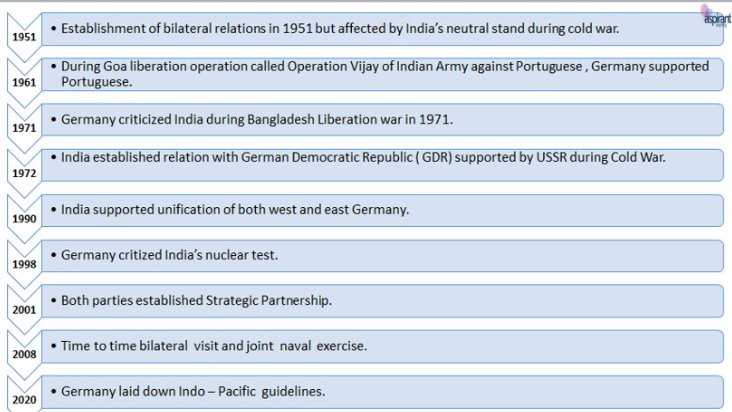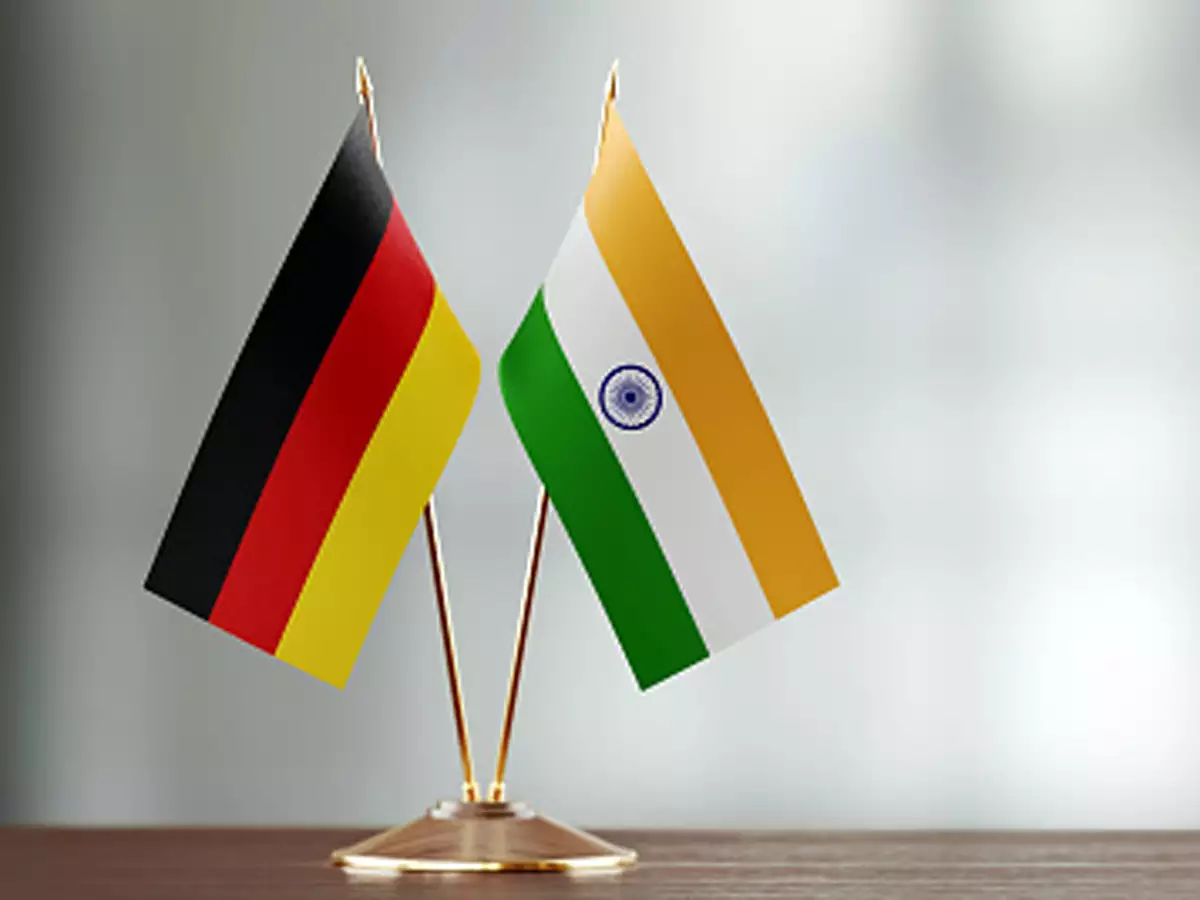News Highlights
As part of improving India – Germany Economic relations, a two-day event on Quality Infrastructure was organised.
Joint efforts of India and Germany are necessary to improve product quality and safety as per: Secretary, Consumer Affairs Ministry.
Quality Infrastructure(QI)
- Quality infrastructure is a system that covers everything needed to ensure safe, high-quality products and services from standardisation, conformity assessment (testing, inspection, and certification), and accreditation to metrology and market surveillance.
- It is important for business, innovation, and trade – both nationally and across borders.
- Importance
- They reduce time, cost, and business uncertainty for companies as well as ensure consumer safety.
Event on Quality Infrastructure Pillar on India – Germany Economic Relation
- Event Organised by – The Department of Consumer Affairs and the German Federal Ministry for Economic Affairs and Climate Action (BMWK).
- Points Highlighted by Indian Side
- Importance of India – German partnership emphasized with Indian Prime Minister’s G7 visit.
- Importance of consumer protection through standards and certification processes.
- Joint efforts are necessary to improve product quality and safety, such as through the various technical exchanges during QI days.
- Future Focus Areas – Artificial intelligence, smart farming, and circular economy
- Points Highlighted by the German Side
- Importance of the bilateral cooperation on quality infrastructure
- Indo-German QI-Days provided an important platform for dialogues to share information and expertise on issues of mutual interest to support bilateral trade and economic activities.
- Underlined the strategic partnership between Germany and India for innovation, digital and green transformation.
Significance of German visit to India
- Indo-German Working Group on Quality Infrastructure for trade, product safety, and consumer protection provide an excellent opportunity to the experts from both sides.
- It aims to improve the mutual understanding of the German and Indian approaches to quality infrastructure (QI).
1st Indo-German Forum on Technical Regulation and Conformity Assessment
- Held parallel to the event.
- Both sides discuss how they can work together to improve the ease of doing business as well as the involvement of the relevant stakeholders in technical regulation.
- It also aims to improve the preparedness of the industry for upcoming regulatory changes.
- It intends to enhance the effectiveness of regulations through the exchange of approaches to technical regulation as well as good regulatory practices.
3rd Indo-German Forum on Standardisation
- Standardisation bodies will discuss approaches and criteria for emerging topics, such as
- Artificial Intelligence
- Electromobility
- Circular economy
- Hydrogen and smart agriculture.
- The forum was established in 2019
- It enables both countries to collaborate on issues of mutual interest that are relevant to the standard bodies, industry as well as consumers.
- Indo-German experts will also discuss the role of standardisation roadmaps and the integration of research in standard development processes.
Panel on Circular Economy
- It will discuss the role of QI in enabling and supporting the ecological transformation of economies at the national and international policy levels.
- The experts emphasized the role of standards and certification in the transition to a circular economy across different sectors.
Evolution of India – Germany Relation

India-Germany Economic Relation
- Germany is India’s top trading partner in Europe, accounting for 17.4 percent of the European market.
- Since 2000, Germany has been India’s seventh-largest foreign direct investor.
- Since 2016, the Department for Promotion of Industry and Internal Commerce (DPIIT) has operated a Fast-Track System for German enterprises to facilitate trade.
- In 2019, India and Germany inked a Joint Statement to establish a Fast-Track framework in Germany for Indian companies.
- The Make in India Mittelstand (MIIM) program is run by the Embassy of India in Berlin to help German Mittelstand (Medium Sized Companies) enter India.
- Germany’s financial aid is mostly in the form of soft loans, composite loans, or grants, all channeled through the German Development Bank.
- Major Projects
- Energy (renewables, Green Energy Corridor)
- Indo-German Solar Partnership
- Skill Development
- Sustainable Urban Development (water/sanitation/waste, climate-friendly urban mobility, smart cities).
Pic Courtesy: Economic Times
Content Source: PIB



